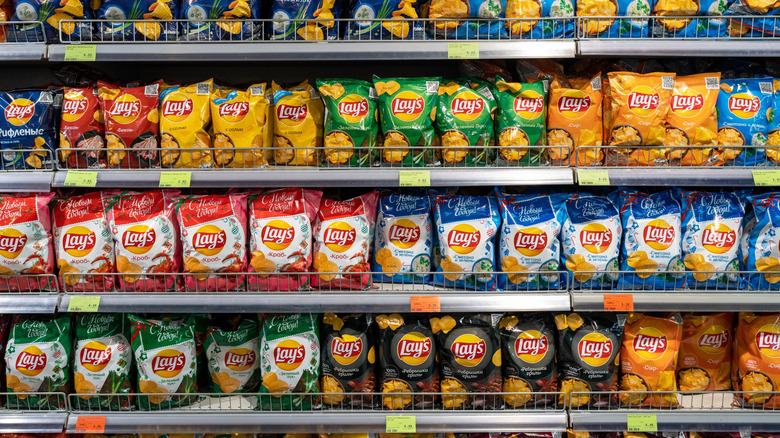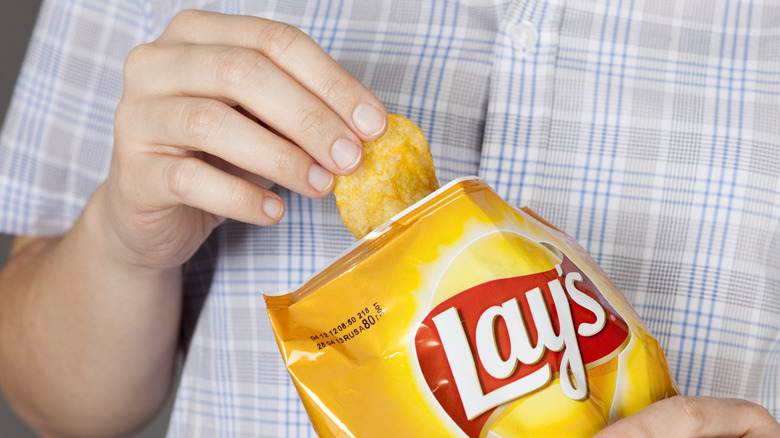Lay's Potato Chip Recall: How To Tell If Your Bag Is Impacted
On December 16, 2024, snack brand Frito-Lay issued a limited recall for bags of Lay's Classic Potato Chips after it was discovered some contained undeclared milk products. According to a company announcement, the contaminated products were provided to stores and distributors based in Oregon and Washington.
The affected Lay's Classic Potato Chips were sold in 13-ounce bags available for purchase beginning on November 3, 2024. If you think you may have one in your possession, look for the UPC number 28400-31041, a label of "Guaranteed Fresh," as well as the expiration date 11 Feb 2025. Additional codes 6462307xx or 6463307xx can be found on the packaging.
There is currently no information regarding how milk products came into contact with the contaminated batch of potato chips, although Frito-Lay did disclose that the company was alerted to the issue "through a consumer contact." As of the time of writing, there have been no reported allergic reactions in connection with the recalled products, and no other Frito-Lay products have been impacted by the recall. People with milk allergies and sensitivities to dairy that identify any contaminated packages are encouraged to discard them immediately, as consuming the food can cause serious illness.
How to safely navigate a food recall if you have a dairy sensitivity
The news of Frito-Lay's potato chip recall is not the first time that a food product has accidentally contained unwanted ingredients. Back in October of 2024, Hammond's Candies Mini-Waffle Cones were recalled due to undeclared trace amounts of milk proteins. A month later, Costco's Kirkland butter was under recall for failing to correctly disclose dairy allergens on its product label. This type of contamination and lack of allergen labelling poses very serious threats to those with allergies or sensitivities who may become sick after unknowingly ingesting foods with traces of dairy.
In addition to staying up-to-date on food recalls, one of the best things that people with dairy allergies can do is to look really closely at labels and identify any possible triggers. Some of the common ones, per John Hopkins Medicine, are artificial butter flavor, caseinates, ghee, lactoglobulin, lactoferrin, nisin, nougat, rennet casein, and whey. As well, the medical researchers state to watch out for "non-dairy" on a label as it just means there's no butter, cream or milk, but there are plenty of other "milk-containing ingredients" that could be involved. As well, those with dairy allergies should avoid lactose-free milk since there are still amounts of the milk protein that could make someone sick.
If you do happen to get sick after ingesting a food that claims to contain no dairy products on its label and ingredients list, seek medical care right away and contact the Food And Safety Administration to alert of potential contamination.


